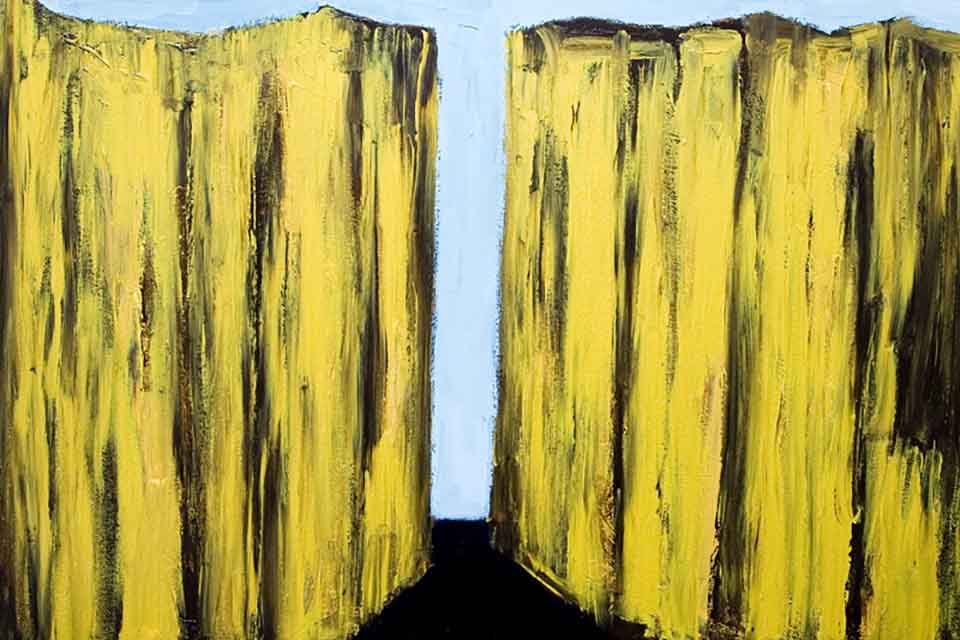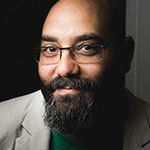Seeing

Series editor’s note: In Matthew Shenoda’s new poem, “Seeing,” the writer turns to poetry itself, reconstructing its ancient space and meaning, searching for a way to understand the meaning of things. But the poem passes judgment on itself almost instantly, how the sacred ground of poetry is not sacred anymore, because even in its spaces the atrocious things happening to black bodies do not make sense at all. It is a sobering truth; a poem that drags us with itself toward the shadows of the cliffs, where we find ourselves over and over again, looming large with grief. With this poem, we have been claimed by the writer, by the poem itself, for our seeing is reshaped in new ways; but the poem is not asking for us to rest in a contemplative state; rather, it expects us to defy this new way of being, this way of searching a new path to understand the world. Instead, it seems to say, this world, like this, does not make sense at all; rebuild it if you must, so it, too, can enter the sacred spaces of sacred things. And with this poem, Shenoda has done just that: created a space for us to build a new world. He has given us the freedom to imagine the mappings of a world where such deaths, such griefs, are not normalized. As they shouldn’t. – Mahtem Shiferraw
Seeing
by Matthew Shenoda
How did the world
collapse itself
into this?
A soft canopy shading both
sun and history
in a way only solace must.
I have found myself
in the shadow of the cliffs
the permeating change of the watershed
reminded here only of the aqua salt of sea and
the wholesale charge of a city, miles from here
ever-present in the soil of memory.
I lose myself in the confluence of words
in the calligraphic seeing of time
once and always at once.
I have come to learn
always at the edge of something
that poetry is not sacred
the sacred is sacred
but the words may lead us there
if only for a moment
asking of us something more than speech.
Perhaps it is there that we begin to understand
the meaning of things
the way a man’s hands wrench
the neck of a stranger
how his feet kick the legs out
from under him
leaving the weight of his body in the mercy of overkill.
I am reminded of a woman in grief
her son divided by land, by triggers and blood.
There were the hands of another,
who slid inside her palm
an envelope, and whispered,
go and bring him.
They carried him over, tucked him under
hid him inside
sheltered him closely.
But the men of sordid allegiance
with their eyes made of convex lenses
polycarbonate searing,
spotted him like a laser
searching for night.
They placed him in a cage made of polished earth
sent him as far from his heart as they could.
And so the world, then, collapses in on itself
trades our words and memories
for a collision of seeing
and a desperate desire to act.
Editorial note: Black Voices is a special series guest-edited by Mahtem Shiferraw and sponsored by the WLT Puterbaugh Endowment, which makes possible the biennial Puterbaugh Lit Fest. The series will run on a weekly basis through August 2020.











